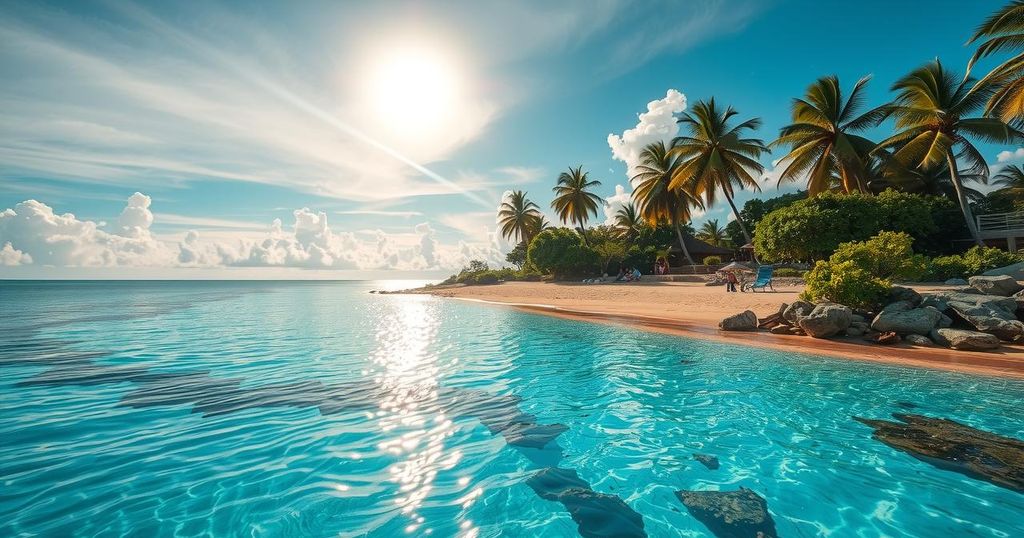Mauritius is undergoing a water crisis due to insufficient rainfall, leading the government to impose strict water restrictions. With predictions of a catastrophic shortage soon, authorities have enacted severe regulations, including penalties for water waste. Travelers should be aware of these implications before visiting, as the water shortage could significantly affect their experience.
Mauritius is currently facing a severe water crisis, prompting the government to impose strict water restrictions for tourists and residents alike. Following an exceptionally dry spell, with insufficient rainfall since July, authorities predict a catastrophic water shortage within two months. Public Utilities Minister Patrick Assirvaden reported that January was the second driest in 25 years, and February’s rainfall was only 43% of the average. The recent cyclone Garance failed to provide significant relief, leaving reservoirs at 41% capacity, insufficient for the nation’s needs.
In response to this dire situation, the Mauritian government has initiated measures to mitigate damage, including the drilling of additional boreholes and the utilization of private water resources. New regulations against water wastage have been enforced, with potential fines and imprisonment for offenders. The irrigation of sugarcane fields, a vital agricultural sector, has been suspended to conserve water resources critical to foreign currency generation.
Minister Assirvaden remarked on the significant challenges posed by climate change, which has led to more frequent and extreme droughts affecting the island’s water availability. For future travelers, it is essential to be aware of these restrictions when planning a visit to Mauritius, as the water shortage may greatly impact their experience.
In summary, Mauritius’s current water scarcity poses a substantial risk to both residents and visitors. With strict regulations in place to conserve water and a focus on addressing the crisis, it is advisable for potential tourists to remain informed before booking their trips. Understanding the consequences of climate change on local resources is crucial for responsible travel.
In conclusion, Mauritius is grappling with a critical water crisis necessitating stringent conservation measures. This situation poses challenges for both locals and tourists, particularly as water shortages threaten the island’s agricultural and tourism sectors. It is imperative for travelers to remain informed about these developments and consider the environmental impact when planning their vacations to this island paradise.
Original Source: www.hindustantimes.com






